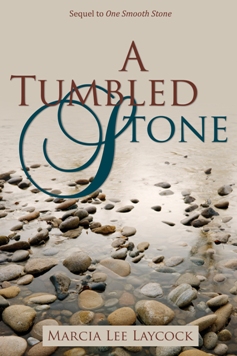MASQUERADE: AM I A FRAUD?
Guest Post by Deb Elkink
My character Ebenezer MacAdam owns Incognito Costume Shop and individually recommends rentals based on a client’s personal character. He says,
I’d like to think the purpose of my costumes has been to reveal the real in this masked and disguised generation. But on a grander scale, I myself am being unmasked and my failure laid open to my own view. So many of my years I spent fearing to be discovered for the fraud I really am. Yet here it is the autumn of my life and I stand naked, as it were, before a Judge more kindly than myself. (The Third Grace, p. 74)
Eb’s words issue from a conflicted spot in my own soul. I’d like to think the purpose of my writing is to speak a message of truth to this generation and yet—like him—the very act of my service exposes me to the truth of my own shortcomings. Doesn’t my choice of words (like his choice of costumes) say more about my own heart attitude than that of the reader whose heart I’m judging?
- I, too, fear being found out for the fraud I really am.
It started early in my life—this suspicion that I wasn’t all that I wished I were or that I portrayed myself to be. When I memorized my spelling list and won the elementary bee, I was self-satisfied but suspected the triumph was a fluke. When I earned honours in graduate school, I delighted in the accomplishment but credited grade inflation. Innately knowing that proficiency can become the breeding ground of pride, I tend to demur: “Oh no, I’m not that talented. It was luck. I don’t deserve the praise.”
There’s actually a psychological label slapped on this condition when it’s pathological: “Imposter Syndrome.” I rush to say that I’ve not been diagnosed; most healthy people to some degree attribute success to luck, reject compliments, or think, “Anyone could have done this.” I suspect it’s a well-intentioned attempt at humility.
- What’s the line between humility and hypocrisy?
Jesus denounced as hypocrites those who ostentatiously fulfilled religious responsibility for public applause, describing the sanctimonious Pharisees with hearts full of greed and self-indulgence as whitewashed tombs and dirty cups (Matt. 6:2, 5, 16; 23:25-28). The word “hypocrite” comes from the Greek stage, where an actor would hold up a mask indicating one emotion while displaying a juxtaposing facial expression revealing his true feelings. “These people honour me with their lips,” Jesus said, “but their heart is far from me” (Matt. 15:8 NIV). Hypocrites receive their reward in this life; no reward awaits them in Heaven.
The deciding factor between true humility and the falseness of hypocrisy, then, seems to be the heart intention of the worshipper/writer; honouring the Lord with my lips/keyboard for temporal reward isn’t synonymous with bringing my heart close to Him. The very public nature of writing for reader feedback (comment on a blog, payment for an article, placement in a competition) forces me to investigate my motives.
- Does my façade match my heart attitude?
The sixteenth-century Reformer John Calvin wrote in his Institutes (1.1.1-2),
Without knowledge of self, there is no knowledge of God . . . Without knowledge of God there is no knowledge of self.
The only way to know God is through His Word (Living via Written). Humility is seeing myself as I really am, in light of God’s gifting. When I look clearly and honestly at my own heart, I am driven back into the Bible, where I must face my motivation and ask myself truly:
- Do I write for recognition by my readers or for reward by my Creator?
The stardust of long-awaited, hard-won, now-realized publication threatens to blind me. The only way I see to avoid hypocrisy—that veneer of false humility—is to face the “shaming nakedness” (as Calvin put it) of my own insufficient human efforts. This readies me for the revelation of the righteousness that exists in God alone, the thrill of embracing His gifts to me. I can see myself in perspective not as I measure up to my idea of authorial success but only as I see God’s flawless provision for my imperfection. On this basis I take joy in unearned grace (of salvation, of course, but also of ongoing achievements) while simultaneously facing my fear of exposure without hiding behind a mask of self-effacement. God is the ground of my humility, the Giver of all gifts for the purpose of His glory.
- I find writing to be a humbling and unmasking experience.
 Deb Elkink, recipient of the 2012 Grace Irwin Award (sponsored by The Word Guild) for her debut novel, The Third Grace, writes from her cottage on the banks of a creek in southern Alberta. Visit her sometime: www.debelkink.com.
Deb Elkink, recipient of the 2012 Grace Irwin Award (sponsored by The Word Guild) for her debut novel, The Third Grace, writes from her cottage on the banks of a creek in southern Alberta. Visit her sometime: www.debelkink.com.
 Watch the book trailer for The Third Grace, and read a review of The Third Grace. Check out all the stops on Deb’s blog tour, and maybe win a Kindle Fire HD.
Watch the book trailer for The Third Grace, and read a review of The Third Grace. Check out all the stops on Deb’s blog tour, and maybe win a Kindle Fire HD.













